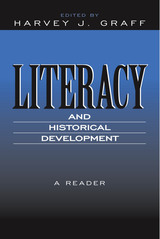
We grow up--so simple, it just seems to happen--and yet there are endless variations in the way we do it. What part does culture play in the process? How much do politics and economics have to do with it? As the nation has matured, have the ways people grow up changed too? This book traces the many paths to adulthood that Americans have pursued over time. Spanning more than two centuries of intense transformation in the lives of individuals and the life of a nation, Conflicting Paths is an innovative history of growing up in America.
Harvey J. Graff, a distinguished social historian, mines more than five hundred personal narratives for what they can tell us about the passage from childhood to maturity. Drawing on diaries, memoirs, autobiographies, and letters, he builds a penetrating, complex, firsthand account of how childhood, adolescence, and youth have been experienced and understood--as functions of familial and social relations, as products of biology and physiology, and as cultural and political constructs. These first-person testimonies cross the lines of time and space, gender and class, ethnicity, age, and race. In these individual stories and the larger story they constitute, Graff exposes the way social change--including institutional developments and shifting attitudes, expectations, and policy--and personal experience intertwine in the process of growing up. Together, these narratives form a challenging, subtle guide to historical experiences and to the epochal remaking of growing up.
The most socially inclusive and historically extensive of any such research, Graff's work constitutes an important chapter in the story of the family, the formation of modern society, and the complex interweaving of young people, tradition, and change.

In The Dallas Myth, Harvey J. Graff presents a novel interpretation of a city that has proudly declared its freedom from the past. He scrutinizes the city's origin myth and its governance ideology, known as the "Dallas Way," looking at how these elements have shaped Dallas and served to limit democratic participation and exacerbate inequality. Advancing beyond a traditional historical perspective, Graff proposes an original, integrative understanding of the city's urban fabric and offers an explicit critique of the reactionary political foundations of modern Dallas: its tolerance for right-wing political violence, the endemic racism and xenophobia, and a planning model that privileges growth and monumental architecture at the expense of the environment and social justice.
Revealing the power of myths that have defined the city for so long, Graff presents a new interpretation of Dallas that both deepens our understanding of America's urban landscape and enables its residents to envision a more equitable, humane, and democratic future for all.

Representing three decades of research, Literacy and Historical Development: A Reader presents some of the most important historical scholarship on literacy in Europe and the United States. The approaches, research, and conclusions reflected in this collection of fifteen essays has changed how historians and many others conceptualize literacy and represents a body of scholarship that is transforming both contemporary and historical literacy theories.
In this revised and expanded edition of the groundbreaking volume Literacy and Social Development in the West, editor Harvey J. Graff provides a new introduction and nine new essays by nationally and internationally renowned contributors from a range of disciplines. Replacing an unquestioned certainty that literacy’s powers are universal, independent, and determinative, Graff brings together studies that support new concepts, contending that the importance and influences of literacy depend on specific social and historical contexts, the impacts of literacy are mediated and restricted, the effects of literacy are social and particular, and the role of literacy must be understood within the burgeoning array of communication technologies.
READERS
Browse our collection.
PUBLISHERS
See BiblioVault's publisher services.
STUDENT SERVICES
Files for college accessibility offices.
UChicago Accessibility Resources
home | accessibility | search | about | contact us
BiblioVault ® 2001 - 2024
The University of Chicago Press









